Symposium and Ann Wee NUS Social Work Alumni Award Ceremony
From Heritage to New Frontiers: Celebrating the Past and Reimagining the Future of Social Work
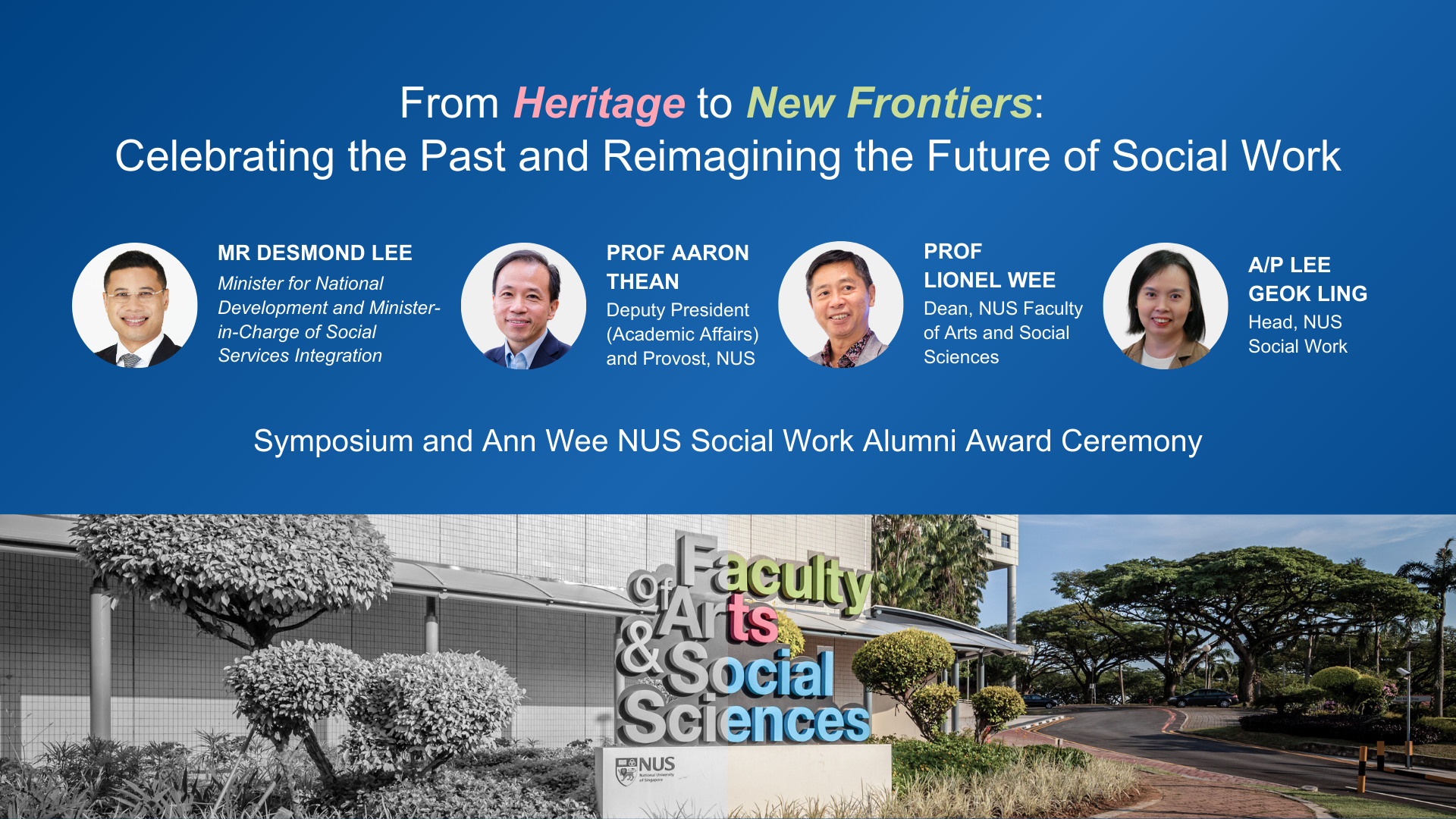
Videos
About the Event
This event not only marks the recognition of pioneering social workers who contributed much to the society, it also affirms the Department of Social Work’s resolve to continually evolve and adapt social work education and research to meet future needs.
Beginning with the Ann Wee NUS Social Work Alumni Award ceremony, we recognise social workers who have dedicated at least 20 years of sustained committed service, and who have made major contributions to social work education and practice.
Following which, the symposium will discuss pertinent issues impacting social work education and practice, and deliberate how education and practice should evolve to address emerging needs and vulnerabilities of individuals and families in our society.
![]() 11 November 2024, Monday
11 November 2024, Monday
8:00AM – 5:00PM
![]() Venue
Venue
NUSS Kent Ridge Guild House
![]() Programme
Programme
Click here to view the programme
![]() Enquiries
Enquiries
Email to swkevents@nus.edu.sg
Welcome Address
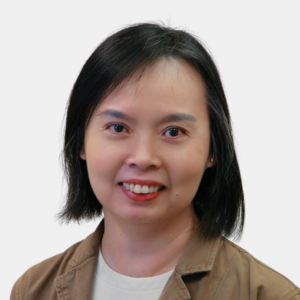
A/P Lee Geok Ling
Head, Department of Social Work,
Faculty of Arts and Sciences, NUS
Geok Ling is an Associate Professor and Head with the NUS Department of Social Work. She is a Registered Social Worker of the Singapore Association of Social Workers, a Certified Fellow in Thanatology of the Association of Death Education and Counseling (ADEC) based in United States, a member of Asia Pacific Hospice Network (APHN), and an invited member of the International Work Group on Death, Dying and Bereavement (IWGDDB). She is also appointed as a workgroup member by the Singapore Hospice Council to develop national guidelines for psychosocial and spiritual care service delivery, and previously an appointed member of the National Strategy for Palliative Care Review Workgroup, MOH. Her research explores the quality of life of patients receiving palliative care or end-of-life care and family caregivers, family caregiving and coping with loss, grief and bereavement.
Opening Address
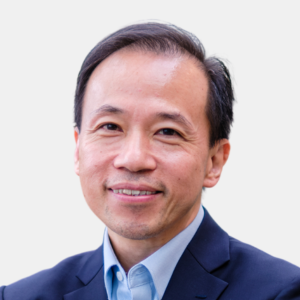
Prof Aaron Thean
Deputy President (Academic Affairs) and Provost,
NUS
Aaron Thean is the Deputy President (Academic Affairs) and Provost of the National University of Singapore (NUS). He was previously the Founding Dean of NUS College of Design and Engineering, and Dean of the Faculty of Engineering, where he is a Professor in the Department of Electrical and Computer Engineering. He holds several technical leadership responsibilities at the University including the Director of Singapore Hybrid-Integrated Next-Generation μ-Electronics Centre, Director of Hybrid Integrated Flexible Electronic Systems research program, and Co-Director for A*STAR SIMTech-NUS Joint Lab on Hybrid Flexible Electronics. Prior to NUS, Aaron was the Vice President of Logic Technologies at IMEC, where he forged partnerships with the industry’s foremost companies such as Intel, Apple and Samsung, and directed R&D operations in such areas as materials research, process technology and system-technology co-design.
Aaron graduated from University of Illinois at Champaign-Urbana, USA, where he received his B.Sc. (Highest Honors), M.Sc., and Ph.D. degrees in Electrical Engineering (Edmund J. James Scholar). He has published over 400 technical papers and holds more than 50 US patents. Among his notable recognitions, he and his IMEC team received the 2014 Compound Semiconductor Industry Innovation award for their III-V Nanodevice work. He was also recognised for his research contribution to Samsung with the 2013 Samsung Collaboration Award from the Samsung LSI EVP.
Keynote Address
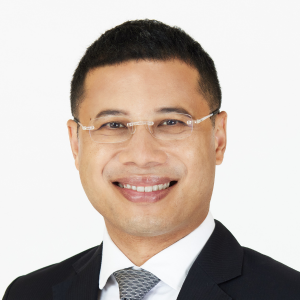
Mr Desmond Lee
Minister for National Development and
Minister-in-Charge of Social Services Integration
Desmond Lee is the Minister for National Development, and the Minister-in-Charge of Social Services Integration. He co-chairs the Singapore-Tianjin Economic and Trade Council, and the Sino-Singapore Tianjin Eco-city Joint Working Committee.
Dialogue Moderator
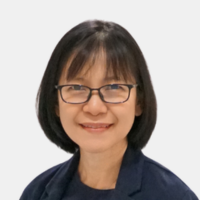
A/P Irene Y.H. Ng
Deputy Head, Department of Social Work,
Faculty of Arts and Sciences, NUS
Irene Y.H. Ng is Associate Professor and Deputy Head in the Department of Social Work and Co-Director of the Social Service Research Centre in the National University of Singapore. She holds a joint Ph.D. in Social Work and Economics from the University of Michigan. Her research areas include poverty and inequality, intergenerational mobility, and social welfare policy. Her current research projects include a study of in-work poverty among the young and social safety nets in East Asia.
Closing Address
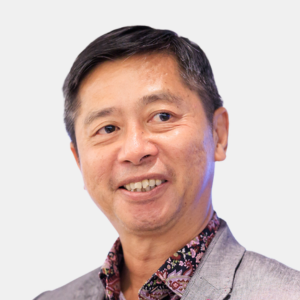
Prof Lionel Wee
Dean,
Faculty of Arts and Social Sciences,
NUS
Lionel Wee is Provost’s Chair Professor in the Dept of English, Linguistics and Theatre Studies, and Dean of the Faculty of Arts and Social Sciences. He is a linguist and works mainly on language policy, new varieties of English and general issues in pragmatics and sociolinguistics. His recent books include The Singlish Controversy (2018, Cambridge University Press), Language, Space and Cultural Play: Theorizing Affect in the Semiotic Landscape (with R. Goh, 2019, Cambridge University Press), and The Sociolinguistics of The Korean Wave: Hallyu as Soft Power (with N. Samosir, 2024, Routledge). His latest book is Automation in Communication: The Ideological Implications of Language Machines (2025, Routledge).
Panel 1: Embracing Social Innovation in Education and Practice
Can social workers code?

Mr Benjamin Png
Product Manager,
Policy & Transformation Specialist,
Open Government Products
Benjamin Png is a product manager and policy & transformation specialist at Open Government Products (OGP), an experimental Government team building technology for public good. Previously, he was a Senior Principal MSW at Alexandra Hospital (National University Health System) with 17 years of acute hospital experience.
At NUHS, Benjamin collaborated with counterparts from NHG (National Healthcare Group), SingHealth (Singapore Health Services), and OGP to launch a national MSW care management system for public healthcare institutions, to help provide better shared care. He is now working on extending it to the social service sector while building digital capabilities in the field.
Synopsis: In today's digital society, social workers must intimately understand not only their traditional context but also the digital landscape. New tools, such as generative AI, offer opportunities for more effective work if utilized properly. Social work managers are increasingly compelled to explore digital solutions for their organizations, often venturing outside their comfort zones.
Benjamin firmly believes that social workers can actively create and participate in digital solutions, rather than being passive technology users. Drawing from his own experiences, including mistakes and lessons learned, he will share his vision of a digitally ready social worker, and hopes to inspire and equip social workers with the confidence to embrace and shape the digital future of their profession.
How technology can strengthen the human relationship
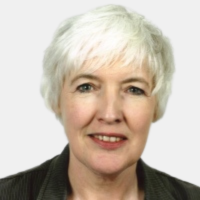
Prof Eileen Munro
Emeritus Professor of Social Policy,
Department of Social Policy,
The London School of Economics and Political Science
Eileen Munro is an Emeritus Professor of Social Policy in the Department of Social Policy.
A background in both philosophy and social work has shaped her research interests in reasoning skills in child protection, leading to an interest in how organisational cultures help or hinder good quality reasoning and practice. Understanding of the complex causal processes in working with families has triggered a critical interest in the philosophy of social science underlying the evidence-based policy and practice movements and a new focus on studying the mechanisms by which change is achieved. With her colleague Professor Nancy Cartwright she is currently undertaking a 3 year study: ‘Providing credible evidence for singular causal claims’, funded by the Arts and Humanities Research Council.
Synopsis: There has typically been a divide between a social worker talking to a family in the family home and writing up their work in the office. Current technology provides the opportunity for dissolving this division. The presentation discusses a number of ways in which technology can assist in creating good working relationships with children, young people and families, with some warnings of how it can be dysfunctional.
The local and the global: Extending the impact of social work through international engagement
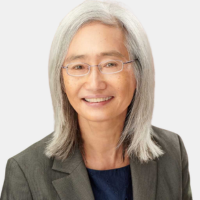
Prof Y.L. Irene Wong
S R Nathan Professor of Social Work, NUS, and
Professor, University of Pennsylvania, U.S.A.
Irene Wong worked in the field of community work in Hong Kong for a decade as a frontline worker, team leader, and fieldwork supervisor. Since joining the University of Pennsylvania in 1995, she has undertaken research projects spanning the fields of mental health, homelessness, housing, and disabilities. A cross-cutting theme across her research projects is social inclusion. Her current research focuses on stigma of mental illness as a barrier of inclusion in Chinese society.
Synopsis: My presentation will draw on my experience of facilitating the Global Studies Program and coordinating faculty efforts in international engagement at the University of Pennsylvania School of Social Policy & Practice. I will highlight the enabling factors that provide synergy in advancing the school’s vision of “active student engagement in their own learning as well as that of social agencies and larger social collectivities organized at the local, national, and international levels.” I will give examples of how social work can extend its impact through student exchange across cultural and national boundaries and interdisciplinary collaboration.
Panel 1 Discussion — Moderator
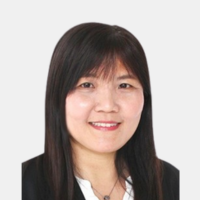
A/P Teo Poh Leng
Head, Social Work Undergraduate Programmes,
Singapore University of Social Sciences
Teo Poh Leng is Head of the Social Work Undergraduate Programmes at the Singapore University of Social Sciences. She holds a PhD in Social Work and a Master in Public Policy. Prior to joining the academia, she worked at the Ministry of Social and Family Development holding leadership positions in diverse settings that include marriage matters, rehabilitation of juvenile offenders and youths-at-risk, destitute persons, family and child protection and welfare, social research and elderly services. With a social work career spanning more than two decades, she has wide experience in social issues, at policy, planning and implementation levels.
Panel 2: Strengthening Partnerships in Social Work Education
From multi- to inter- to trans-disciplinary partnerships in early intervention: Reflections for social work
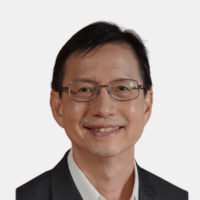
Prof Kenneth Poon
Dean, Education Research,
National Institute of Education,
Nanyang Technological University
Kenneth Poon is Lien Foundation Chair Professor. A clinical psychologist and early interventionist by training, he serves concurrently as Dean, Education Research, as well as Centre Director of the Centre for Research in Child Development at the National Institute of Education, NTU. His research focuses on the development of children, especially children with disabilities and those at risk. Kenneth currently serves as Singapore's child representative to the ASEAN Commission for the Promotion and Protection of the Rights of Women and Children. He also serves on the Boards of the National Council of Social Service and Catholic Family Life.
Synopsis: In the recent decades, the social service sector in Singapore has progressed from charities frequently mainly staffed by volunteers to organizations led and supported by a team of competent professionals. Mirroring the development within the sector has been a change in nomenclature from Voluntary Welfare Organizations to Social Service Agencies. Perhaps reflecting these structural changes are the evolving roles of the Social Worker. There has been a shift from a profession-centric approach to one that involves high levels of collaboration with other professionals serving in the same space.
Drawing upon lessons from Early Childhood Intervention, this sharing will touch upon how assessment, decision-making, and intervention can look like across Multi-, Inter-, and Trans-disciplinary approaches. In addressing the frequently and increasingly complex problems in social service, the utility of such an approach will be considered.
Cultivating the practice + business of social work
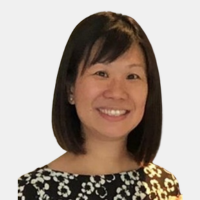
Ms Wu Mei Ling
General Secretary and Chief Executive Officer,
YMCA of Singapore
Wu Mei Ling has been serving in the children and youth sector for more than 30 years. She is currently with the YMCA of Singapore, a 122-year-old organisation that seeks to serve and impact all members of the community regardless of race, language or religion, overseeing its community services, social enterprises and association.
In addition to direct services, Mei Ling had served on various committees and engaged in teaching stints. These included Singapore Association of Social Workers Executive Committee, National Social Work Competency Framework Steering Committee, Youth Corps Singapore Advisory Committee and Committee on Pathways and Opportunities in Applied Education. Her teaching stints were as Associate Lecturer at National University of Singapore and Singapore University of Social Sciences and trainer with Social Service Training Institute (presently known as Social Service Institute) and Ministry of Education.
In recognition of her efforts and contributions, Mei Ling was awarded the Outstanding Social Worker Award 2012, Social Service Fellow 2016 – 2019, Tote Board Overseas Scholarship 2017 and nominated for The Singapore Women’s Weekly Great Women of Our Time – Education and Public Service 2013.
Synopsis: UDSDGs, AI, B Corp Companies, Social Financing and Triple Bottom Line – these are some of the key movements across the world that have been changing the development and delivery of solutions to social issues. What and why do social workers need to know about them? How do we ensure that the next generation of social workers are participants and envelope pushers in these while retaining our social work values, skills and knowledge?
Building social impact across the multiverse
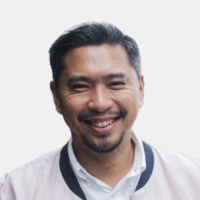
Mr Martin Tan
Chief Executive Officer,
The Majurity Trust
Martin Tan is the CEO of The Majurity Trust, a philanthropic organization in Singapore that works with donors and charities to build a thriving community in Singapore. Martin serves as board member of Founders Memorial, Ray of Hope, Children's Museum Singapore, and Halogen Singapore (which he co-founded in 2003). He previously served on the boards of the National Council of Social Service, National Library Board, National Family Council and National Youth Council.
He was the Executive Director of the Institute for Societal Leadership at Singapore Management University and has worked with leaders in various sectors globally as a motivational speaker and leadership developer. Martin was awarded The Outstanding Young Person Award (2008) and Singapore Youth Award (2013).
Synopsis: Like the idea of a multiverse, there are different realities people face in society that make societal issues complex beyond what one single agency can solve. What are the common threads that we can pull when thinking about social impact across these multiple realities? What can the future hold if we think about social impact differently? What roles do social workers play within the ecosystem? Building social impact across the multiverse will require a different way of looking at our work today and tomorrow in the social space.
Panel 2 Discussion — Moderator
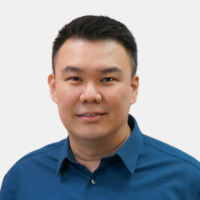
Mr Alvin Chua
Lecturer, Department of Social Work,
Faculty of Arts and Social Sciences, NUS
Alvin Chua is a Lecturer with the NUS Department of Social Work. Prior to joining academia, he spent almost two decades in the social service sector. Over the years, Alvin had led, managed and practised social work in diverse settings including Family Service Centre, Family Violence Specialist Centre, acute hospital and children’s home.
At the national level, Alvin led the profession as President of the Singapore Association of Social Workers (SASW) from 2011 to 2015 and served on the SASW Executive Committee for more than a decade. As Chairperson of the Social Service Industry Skills and Training Council, he also drove the manpower and skills strategy for the social service sector in 2014. Currently, Alvin serves as the Deputy Chairperson on the Civil Legal Aid Means Test Panel.
Panel 3: Transforming Lifelong Learning in Professional Development of Social Workers
The role of social work professional standards in educating future social work graduates, protecting the public, and positioning the profession: An Australian experience
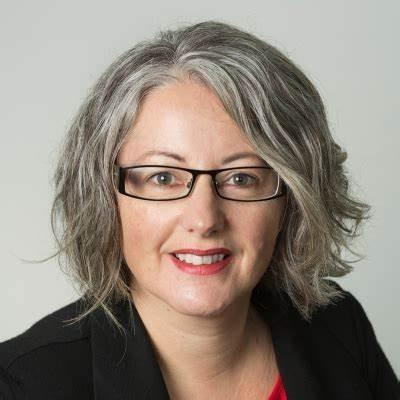
Ms Cindy Smith
Chief Executive Officer
The Australian Association of Social Work
Cindy has led AASW since 2016. She is a qualified social worker with almost 20 years’ experience in positions including leadership in community health and out-of-home care, managing a counselling team, senior management of a Child, Youth and Family Directorate in community health, and Executive Director of a not-for-profit organisation.
Cindy is a graduate of the Australian Institute of Company Directors, a Fellow of the Australasian College of Health Services Management and a member of Chief Executive Women. She is a Certified Health Executive, holds a Bachelor of Social Work, a Masters in Health Administration, and a Graduate Certificate in Health Service Management. Cindy served as an AASW Board Director from November 2011 to June 2016.
Synopsis: The Australian Association of Social Workers (AASW) has developed and implemented the Australian social work Standards since the late 1960’s and accredits 37 providers of social work education. The AASW’s accrediting focus is to ensure graduate social workers are equipped to practice safely and with confidence, the AASW accredits the providers of social work education against the Australian Social Work Education and Accreditation Standards (ASWEAS).
Social work in Australia is a self-regulating profession (not regulated by government legislation), the AASW sets the professional standards for social work university education, social work practice and membership to the AASW. In addition, the AASW develops and implements the Australian Social Work Code of Ethics and the Social Work Practice Standards.
The AASW has been advocating since the early 1970’s for national registration (of social workers in Australia). Since 2015 there has been four coronial reports recommending that social workers in Australia should be registered under that National Registration and Accreditation Scheme. This presentation will discuss the role of the ASWEAS in educating future social work graduates, protecting the public and positioning the social work profession.
Evolving with purpose: Lifelong learning for growth and impact for social workers
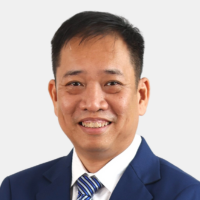
Dr Vincent Ng
Chief Executive Officer
Allkin Singapore Ltd
Vincent Ng is CEO of Allkin Singapore and a recipient of the Outstanding Social Worker Award (OSWA) in 2017.
Vincent actively reaches out to develop young leaders across various agencies in the sector. He envisions a vibrant, cohesive and supportive social service sector that would be a choice career for people. Beyond his responsibilities in Allkin, Vincent serves on several boards and committees to provide insights through the lens of a social work leader. He is always curious about emerging social phenomena and their impact on the social work mission, and is a firm believer of lifelong learning.
Synopsis: In a rapidly evolving world, the importance of lifelong learning for social workers cannot be overstated. Demographic shifts, such as the ageing population alongside the emergence of younger generations, coupled with societal complexities, including poverty, oppression, and vulnerability, demand that social workers continuously adapt to meet developing challenges. As social norms change, the role of social workers have become increasingly multifaceted, requiring ongoing education and development to stay updated.
National movements toward skills-based learning and competency development highlight the importance of equipping social workers with the tools necessary for success in this demanding field. Our competencies should enable us to fulfil our social work mission and purpose, which will continue to transform with changing times. Organisations can foster developmental conversations to ensure that social workers – both individually and collectively – leverage their competences to meet society's evolving needs.
As the leader of Allkin Singapore, which started as Singapore's first family service centre and has since grown into a multi-service social service agency, Dr Vincent Ng shares his insights on leadership and social work development for career sustainability and longevity. Continuous investment in personal development and staying abreast of the latest knowledge are more important than ever for social workers to adapt, innovate and grow, thereby building a brighter future for social work.
Is it only Option A or Option B? My journey to stay relevant for uncommon roles in social work
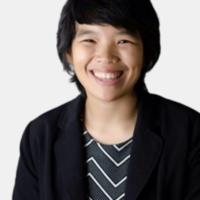
Ms Tok Kheng Leng
Social Worker,
Project X Society
Tok Kheng Leng is the first social worker hired by Project X Society, the only rights-based organisation that provides social, legal and emotional support for sex workers. She leads the employment programme for sex workers who intend to transition out of the sex industry.
Prior to her work with sex workers, she worked with children from lower income families, youths-at-risk and issues of intergenerational poverty in Singapore. Her favourite job was being the Housemistress of =Dreams, the first boarding campus in Singapore.
She recently completed an ontological coaching certification with The Coach Partnership to better equip herself with new lenses to better support fellow social workers.
Synopsis: Social work practice occurs in the context of rapid renewal of policies, funding directions and changing community needs. In the most recent ForwardSG exercise, there is a strong focus on being a learning society that embraces continued growth through life, to fulfil our potential and pursue diverse dreams.
In my social work journey, I worked with varied groups of service users and partners, embarked on new and promising social interventions for the lower-income and worked as a service planner that influenced programmatic funding.
In this presentation, I share my career options and choices, against the backdrop of ongoing conversations among my peers of skills upgrade, career progression and salary increment. I will also share perspectives of how to remain relevant in the uncommon roles I have been involved in.
Join me to reflect on how to remain relevant and effective as a social worker.
Panel 3 Discussion — Moderator
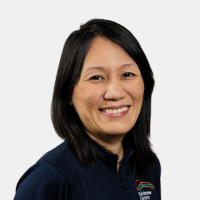
Ms Tan Sze Wee
President, Singapore Association of Social Workers, and
Executive Director, Rainbow Centre, Singapore
Tan Sze Wee is the current President of the Singapore Association of Social Workers (SASW). Sze Wee brings over 20 years of experience in the social service sector, having served in various capacities that have contributed to her extensive knowledge and expertise, particularly in the disability sector.
As the Executive Director of Rainbow Centre, Singapore, Sze Wee has driven initiatives ranging from developing transdisciplinary approaches in early intervention to implementing asset-based community development to support adults with disabilities. At the heart of these projects are core social work values and principles, such as person-centered planning and community empowerment.
Through her leadership at SASW, Sze Wee is working to elevate the status of social work and strengthen the capacities of practitioners so that the profession can increase its impact and effectively address evolving social challenges in Singapore.

